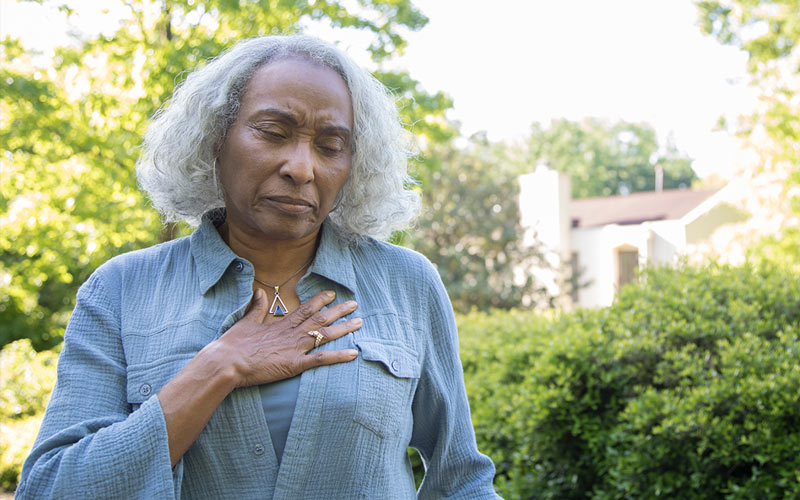As summer arrives in Washington, we are eager to get out in the sunshine and soak up the rays, but as temperatures rise, so do the occurrence of heat-related illnesses.
According to the Centers for Disease Control and Prevention (CDC), above-average temperatures or unusually humid weather kills more than 600 people in the United States each year. It’s important to know what precautions to take to stay safe in the summer months.
See CDC Extreme Summer Heat FAQs ➜
Download CDC Extreme Summer Heat Infographic as a PDF ➜
What are heatstroke and heat exhaustion?
These conditions both result from overexposure to extremely hot weather.
Heatstroke
Heatstroke is caused when your body overheats, usually due to activities outside when it’s hot out and requires emergency treatment.
Symptoms include:
- High body temperature
- Confusion, agitation, slurred speech, irritability, delirium
- Nausea and vomiting
- Flushed skin
- Rapid breathing and racing heart rate
- Headache
- Loss of consciousness
Heat exhaustion
Heat exhaustion is a result of your body overheating. Without prompt treatment, heat exhaustion can lead to heatstroke, a life-threatening condition.
Anyone who suspects that they have heat exhaustion should immediately rest and drink fluids. If symptoms do not improve, seek medical attention to prevent heatstroke.
Symptoms include:
- Headaches
- Dizziness and fainting
- Excessive sweating
- Cold, pale and clammy skin
- Nausea or vomiting
- Weak, rapid pulse
- Weakness or muscle cramps
- Excessive thirst
Risk factors
Certain factors can make a person more likely to experience heat exhaustion or heatstroke. These include:
- Age – being younger than 13 or older than 65
- Exertion in hot weather
- Sudden exposure to hot weather — experiencing sudden changes in temperature, such as by traveling from a cold to a hot climate
- A lack of air conditioning
- Some medications affect your body’s ability to stay hydrated and respond to heat. Be especially careful in hot weather if you take medications that narrow your blood vessels (vasoconstrictors), regulate your blood pressure by blocking adrenaline (beta blockers), rid your body of sodium and water (diuretics), or reduce psychiatric symptoms (antidepressants or antipsychotics). Stimulants for attention-deficit/hyperactivity disorder (ADHD) also make you more vulnerable to heatstroke.
- Certain health conditions. Certain chronic illnesses, such as heart or lung disease, might increase your risk of heatstroke. So can being obese, being sedentary and having a history of previous heatstroke.
- Having a sunburn
Prevention
When temperatures rise, it is important to know how to prevent heat-related illnesses before they happen. Follow these strategies to stay safe in the heat:
- Wear loose-fitting, lightweight clothing. Wear loose, light layers in breathable fabrics like cotton, linen, rayon, or silk. REI created a guide to dressing for hot weather.
- Protect against sunburn. Sunburn affects your body’s ability to cool itself, so protect yourself outdoors with a wide-brimmed hat and sunglasses, and use a broad-spectrum sunscreen with an SPF of at least 15. Apply sunscreen generously and reapply every two hours — or more often if you’re swimming or sweating.
- Drink plenty of fluids. Staying hydrated will help your body sweat and maintain a normal body temperature. Avoid caffeine, alcohol, and sugary beverages.
- Use precautions with certain medications. Be on the lookout for heat-related problems if you take medications that can affect your body’s ability to stay hydrated and regulate heat.
- Stay indoors during the hottest part of the day or take it easy. If you can’t avoid activity in hot weather, drink fluids and rest frequently in a cool spot. Try to schedule exercise or physical labor for cooler parts of the day, such as early morning or evening.
- Try to stay in the shade when outdoors.
- Get used to heat gradually. It can take several weeks for your body to adjust to hot weather. Limit time spent working or exercising in heat until you’re conditioned to it.
- Use caution if you’re at increased risk. If you take medications or have a condition that increases your risk of heat-related problems, avoid the heat and act quickly if you notice symptoms of overheating.
- Use cooler water for showers and baths.
- Never leave any person or animal in a parked car! When parked in the sun, the temperature in your car can rise 20 degrees in 10 minutes. It’s not safe to leave a person or animal in a parked car in warm or hot weather, even if the windows are cracked or the car is in shade.

